Pendleton Woolen Mills is upbeat about Merino’s future
Pendleton of Portland, Oregon USA, sees wool as a practical luxury well within the reach of many consumers worldwide. John P. Bishop, Vice President Mill Sales told Treena Hein this is due in large part to improved quality, a result of long-term hard work by Australian producers.
Pendleton, a sixth generation family-owned business, specializes in fine woollen menswear, womenswear and blankets. The company traces its roots to 1863 and the leadership of Thomas Kay, an English weaver and forebear of the current owners. In 1909 and 1912, the company acquired and restarted defunct mills inPendleton,OregonandWashougal,WA, both of which are still in operation today.
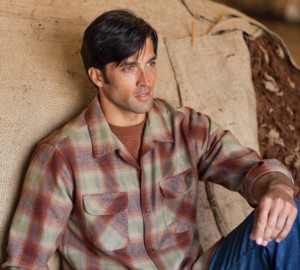
Pendleton does 90 per cent of its business in the U.S., with the remainder in Canada, Japan and Europe. “We feel we should be able to do more business in all those markets,” says Bishop. “In Japan, the best opportunities are in apparel shirts and sportswear. The people there are responding strongly to heritage products – those genuine American iconic products that represent a Western American rancher-cowboy look. In Canada, it’s both blanket products and more apparel sales that we’d like to grow.” Bishop notes that as the company has transitioned from a seasonal wholesale business to a year-round consumer direct/retailer, non-wool products now have a larger presence in their lines. Pendleton’s product offerings are rounded out with wool knits and non-wool products sourced from other manufacturers located around the world. “Wool continues to be the anchor or our fall collections,” he says. “New, lighter weight and stretch wools have helped drive new sales.”
The company’s catalogues and website are their most effective tools for reaching out to new customers and telling their story, says Bishop. “The catalogue and internet do more volume than our retail stores. We also operate 23 outlets.”
Bishop sees clothing and textiles made of Merino and other fine wools as “a practical luxury” well within the reach of many consumers worldwide. “A global increase in middle class consumers should favour affordable luxuries like Merino products,” he says. “Additionally, as people begin considering the sustainability and environmental soundness of other fibres, the wool industry could receive a shot in the arm.”
Bishop also points to the trend back to classic materials and styles – in everything from clothing to jewellery to cars – includes renewed interest in wool and wool blends. “This interest could definitely lead to increases in wool prices,” he notes. “We also see opportunities for wool as more consumers become aware of the comfort and performance associated with products made using fine counts.”
Wool sources
Pendleton spins wool and yarn and buys worsted Australian yarn in the 19-21 micron range. From U.S and South American producers, it buys 22-23 micron product. “We buy wool yarns from various Asian countries, generally combed there from Australian wools,” says Bishop.
Pendleton also buys wool knits from China, generally from Chinese yarns of Australian wools, and Australian wools for its U.S.woolen spinning operation. “We have been buying wool from a couple of US ranching operations continuously, to the best of anyone’s knowledge, for 100 years,” says Bishop. “It’s all done on a year-to-year basis without a long-term agreement. We are all for alliances.”
For fine wool product markets to grow, Bishop thinks growing general awareness of wool’s benefits is a necessity, especially amongst younger consumers. “They need to be exposed to the products, especially products made of ‘Superwash’ Merino knit like bike shorts, T-shirts, underwear and long underwear,” he says. “It’s a high performance, comfortable knit that opens people’s eyes to what wool can be, and changes any negative perceptions. It provides amazing moisture and odour control when you’re riding a long distance on a bike for example, significantly outperforming human-made fibres and cotton.”
Once some young people have experienced these products, Bishop says “They tell their friends about them and start wearing them in casual settings, such as on the golf course. Companies like us are putting Superwash out there in stores and catalogues, and it will permeate the market over time.” Bishop calls the knit “the most exciting thing to have happened to wool in my memory, period.”
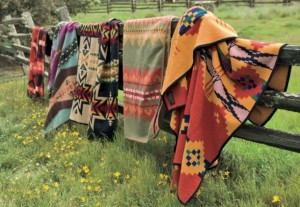
Bishop believes his company has a strong role to play in the Merino wool supply chain in terms of promoting Superwash Merino knits to consumers. “Pendleton is one of the strongest voices in the retail world for wool,” he says. “We promote our wool fabrics and the wonders of wool in our catalogues, via the internet and on hangtags on our items. Our most effective tool is our catalogue. We want our customers to feel proud about purchasing wool and purchasing products made from Pendleton wool.” While the company used to use the Woolmark label, Bishops says today it uses other messaging on the products to promote the fact they’re made of wool.
Profit outlook
The price of fine wools, in Bishop’s opinion, will by driven by demand from upscale consumers, as opposed to a buyer’s market for coarse wools. However, he believes the price spread between low and high quality wools will likely increase as human-made fibres continue to gain share of the mass markets. “As wool is only a 1.6 per cent player in apparel fibres, we will need to keep exploring niche markets,” he notes. “As these markets develop, the supply and demand matrix will set the price for the types of wool in the popular products in demand.”
Bishop recognizes that to maximize profits, sheep producers have to strike a balance between the efficient production of lamb as their number one cash crop, and wool production. “Wool quality is a factor that improves the bottom line of their operations,” he says. “What we all want to avoid is large swings in wool prices because that hurts long-term product development as well as marginal niche markets.”
Bishop says Merino producers have to stay aware of where their fibre is being used and what trends their wool buying customers are seeing, and then use this information to make decisions about which preparation level makes economic sense for their wool clip in the coming year.
“All of this should be discussed with the customer after the current year’s sale to prepare for the next year’s production,” he says. “Light-weight wool fabrics are still leading the wool apparel markets, and so Merino wool producers should continue to see good demand.”
Pendleton is not currently making efforts to buy or market wool from unmulesed sheep, and has no immediate plans to differentiate. “We’re hoping the problem is solved by continued breeding efforts, and the industry can move away from mulesing before it becomes a bigger issue in the marketplace,” Bishop says.
The appreciation of the Australian dollar, at parity with U.S. dollar, has provided challenges with higher costs, challenges that Bishop says must be met by addressing the needs of everyone in the supply chain. “The cost of wool is a sensitive issue and we’re concerned that our costs are up,” he admits, “but we’ll have to see how consumers will respond to this, and we also recognize that producers need to make money.” Bishop says “It would be great if the market was more stable and until the run-up in prices in the 80’s, the Australian Industry provided the market with great service and price stability. It’s too bad it got unravelled.”
Bishop says Australian producers have done “a great job” of improving their product over the recent past. “If you look at the number of pounds of 16,18, 20 micron wool being produced today, it has increased while total pounds grown has declined significantly,” he observes. “Australian farmers are to be commended for their hard work in producing fibre today that wasn’t really available years ago in any kind of quantity. They’ve succeeded amazingly well in the development of higher quality, more comfortable fibre, suitable for lighter weight goods and that’s hugely important. We depend onAustraliafor clean wool that we can’t always get from other markets.”
Find out more
Pendleton Woolen Mills www.pendleton-usa.com ; Treena Hein is a Canadian freelance journalist thein at xplornet.com Copyright Treena Hein 2010.
Pendleton’s ‘Favorite’ Wool Collection
This collection of wool fabrics that include two, ‘Seasonless’ and ‘Sir Pendleton’ that are made from Australian Merino. None of the Favorites are ‘Superwash.’ Bishop says “Twenty years ago our top selling fabric was 250 g/m2, and today’s top fabric, Seasonless, is 190 g/m2. Our lightest wovens go down below 150 g/m2. These lightest weights are luxurious, but also expensive and somewhat delicate. For these reasons, the trend to lighter weights is abating.” Bishop adds that wool/poly blends are going to be more important this year because of pricing pressure in the marketplace. “We generally stick with 100% Virgin Wool but also use Lycra blends for performance, and blends with silk and rayon for spring.”
Boiled Wool
A merino wool knit that is dyed and then shrunk using intense steam. The thick, dense, felt-like fabric is very warm and wind- and water-resistant. Our Loftlight Boiled wool is a very fine gauge knit that is exceptionally light and ideal for cozy, comfortable sweaters and jackets.
Doubleface Wool
Two fabrics are woven simultaneously and bound together as they are woven to create a single, usually reversible cloth.
Jacquards (Source of wool: Uruguay, Brazil, Australia, New Zealand; 23.0 micron, spinning count 62’s)
Woven on a jacquard loom interlacing several hundred warp threads to create a rich, colorful, often intricate double sided pattern. Pendleton blanket jacquards (and some garments) are woven of 82% pure virgin wool with a warp of 18% cotton. Some lighter jacquards are woven of 100% pure virgin wool. Our Native American blankets and many of our Western inspired vests and coats are jacquards.
Luxe Wool Flannel
Unlike many flannels, ours is woven using fine, smooth worsted wool yarns. The fabric is lightly brushed for a smooth, velvety finish that never seems fuzzy. It drapes and tailors beautifully making it ideal for career and dressier skirts, trousers and jackets.
Seasonless Wool (Source of wool: Australia; 19.5 micron, spinning count 70’s)
Ultralight woolen fabric with a refined hand, woven of 100% pure virgin worsted wool that is ideal for year-round wear. This versatile fabric is used in our classic blazers, jackets, trousers and skirts as well as new styles each year. Garments are treated with Teflon Fabric protector to minimize the effects of spills and help prevent stains.
Tricotine Wool
The lightweight worsted yarn of our popular Seasonless Wool has been used to weave this wonderful fabric that lends itself to softer styling. It’s crepe-like with a beautiful drape and is ideal for dressier looks and year-round wear.
Tropical Weight Wool
A favorite for women’s summer suiting. This open plain weave, ultralightweight worsted wool is wonderfully light and airy, naturally cooling and breathable for spring and summer wear.
Sir Pendleton Wool (Source of wool: Australia; 19.5 micron, spinning count 70’s)
A finely woven, 100% pure virgin worsted wool fabric made from our lightest weight wool. The plain weave, 7.2 ounce fabric is ideally suited for business casual wardrobes.
S-t-r-e-t-c-h Wool
New Pendleton stretch wool is another wool-weaving coup. We’ve been able to produce a miraculously light, plain weave worsted wool with a little Lycra® spandex for superior fit and comfort.
Umatilla Wool Wool (Source of wool: USA (Oregon,Idaho,Utah,New Mexico; 23.0 micron, spinning count 62’s) The rugged, 9.7 oz. medium weight wool found in our versatile Umatilla Wool shirts and Board Shirts, which can be worn indoors, or outdoors as a light jacket. This plain weave, 100% pure virgin wool fabric is machine washable.
Virgin Wool
Wool that is shorn from a live sheep. It is never reclaimed from the mill floor or recycled fabrics. All Pendleton woolens woven in our own mills are 100% pure virgin wool.
Worsted Wool
Longer fiber wool yarn that is used in a variety of weights in many of our woolen fabrics. These longer fibers are combed parallel to one another, tightly twisted and require a special spinning technique. Zephyr Cloth, Luxe Flannel, Seasonless Wool, New Stretch Wool and Sir Pendleton Wool are all made from worsted wool yarns.
Whisperwool
A plain weave fabric, spun and woven from the finest wool. It’s one of our softest woolens, and it’s machine washable.
Wool Gabardine
Tightly woven, diagonal weave fabric of 100% pure virgin worsted wool. An ideal suit and trouser fabric noted for a firm, durable structure that retains a soft drape. Gabardine is naturally water repellent.
Zephyr Cloth Wool
Our new, sleek light worsted wool shirting as gentle on the skin as the west wind for which it was named. This sophisticated fabric drapes nicely and has a refined hand that is lightly brushed.

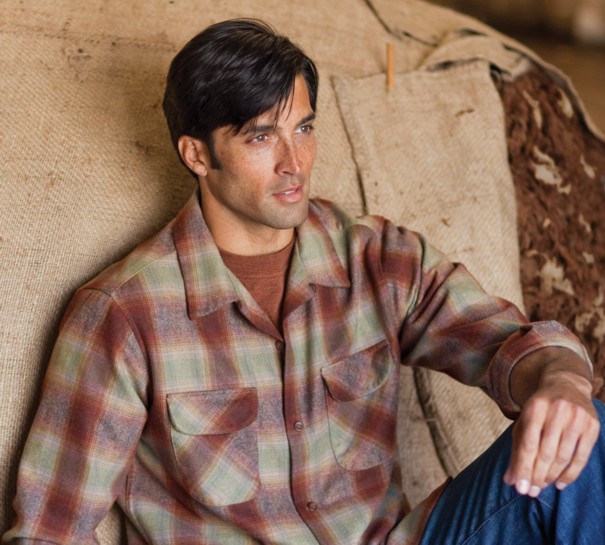
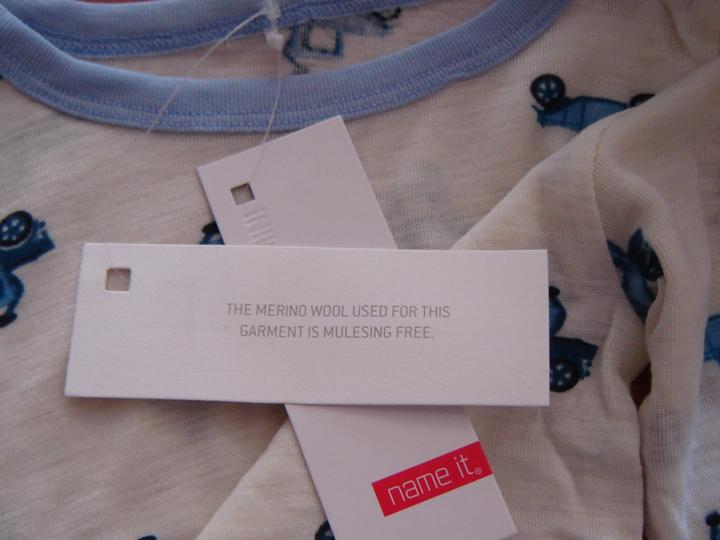

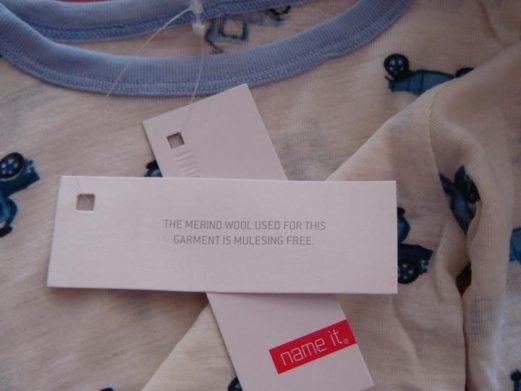
I am searching for etching press blankets for my art. I require two blankets of 100 percent felt tightly woven with out edging. One is .25″ and one is .125″ – The need to be approximately 1 meter by 1and half meters. Do you make anything like this. They are extremely expensive to buy through the art supply stores.